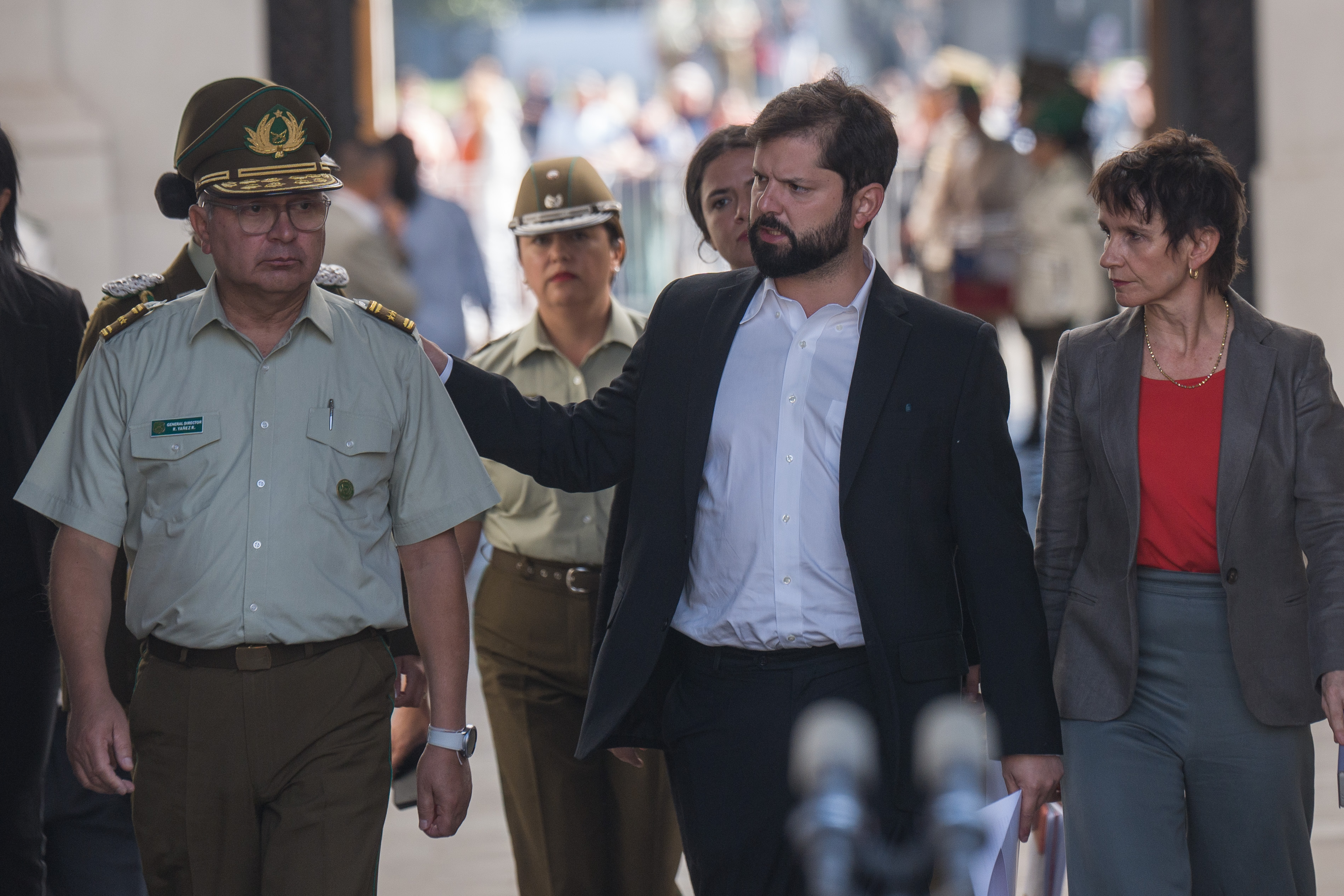Valparaiso/Santiago de Chile. The Chilean Parliament has passed the Nain-Retamal legislative package. It is named after two carabineros killed that year. The law is intended to increase the penalties for violence against law enforcement officers and give police officers more leeway to use firearms. Critics refer to the law as “gatillo fácil,” which describes the behavior of security forces who rashly use firearms.
The right-wing opposition celebrated the passage of the law. “Anyone who has a gatillo fácil today is organized crime. We want to ensure that they are deprived of this opportunity and ensure that the police are allowed to act with the necessary respect,” said MP Javier Macaya from the ultra-right party Unión Democráta Independiente.
For Macarena Silva of the human rights organization and memorial Londres 38, the law is a serious step backwards. “50 years after the military coup, parliament passes a law that seeks impunity for the police and can use violence to prevent any social protest in the future,” she told Amerika21.
The legislative initiative, originally tabled by the opposition, was initially rejected by the government, which briefly considered using a presidential veto. However, the general political situation meant that Interior Minister Carolina Tohá refrained from doing so. Instead, she asked the Senate and Parliament to change various passages of the law.
So became special controversial article deleted, which absolved executives from any liability for the misconduct of their subordinates and would have allowed the use of firearms even against unarmed persons. At the last minute, the article that would have enabled the police officers to assess their own risk and thus use the firearm much earlier was also removed. This liberal interpretation of self-defence, called “privileged self-defence” in the text of the law, would have made it possible to use firearms during demonstrations, from which stones or Molotov cocktails would be thrown at police officers.
Die United Nations and major human rights organizations such as Human Rights Watch and Amnesty International have criticized this interpretation of self-defense as undermining the rule of law.
In its said goodbye Form, the law primarily provides for more difficult prison conditions for people who have committed violence against police officers and gives the security forces a little more freedom for “self-defense” if they see their lives or that of others in danger. The difference to “privileged self-defense” is that in a legal investigation, the word of the police officer involved is no longer enough to confirm the danger.
Senator Fabiola Campillai, herself a victim of police violence, said “When carabineros were given more room for manoeuvre, human rights were violated,” alluding to the violent repression of the 2019 protests. “I would not have experienced justice under this law,” said Campillai. In November 2019, in the context of the social revolt, shot a police officer used a tear gas grenade in the face of Campillai, who was on her way to work at the time. In September 2022, a court sentenced gunman Patricio Maturana to 12 years in prison. Campillai is blind as a result of the gunshot and has no sense of smell or taste.
For months, the subject of public safety has dominated the mood in society and the media (america21 reported). In the past month alone, three police officers have been shot dead while on duty. The management level of the police insists on more resources and more leeway in the use of coercive measures. opposition and parts of the government demand the declaration of a state of emergency in the capital Santiago and the deployment of the military.
Former police officer and critical security expert Daniel Soto sees the problem elsewhere. In an interview with the daily newspaper La Segunda said the former colonel: “Carabineros have a leadership crisis within the institution”. This leads to poor training, far too dangerous operations by individual police officers and a management style that is no longer up to date. The laws that are currently being introduced would not solve the basic problem of public safety and would give police power more leeway.
Meanwhile, the government of President Gabriel Boric is being pushed ahead of it by the right-wing opposition and senior police officers. After the last cop murder on April 5th quit they are committing an additional $1.5 billion to fighting crime and stepping up policing in hard-hit communities. The police reform originally announced at the beginning of the term of office is finally off the table.
